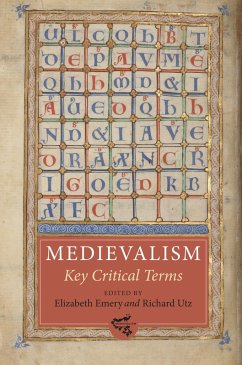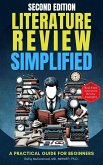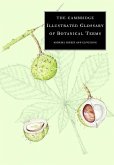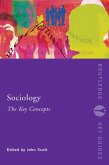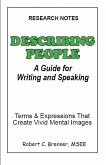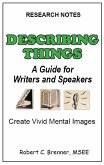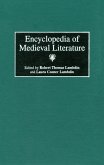Definitions of key words and terms for the study of medievalism.
The discipline of medievalism has produced a great deal of scholarship acknowledging the "makers" of the Middle Ages: those who re-discovered the period from 500 to 1500 by engaging with its cultural works, seeking inspiration from them, or fantasizing about them. Yet such approaches - organized by time period, geography, or theme - often lack an overarching critical framework. This volume aims to provide such a framework, by calling into question the problematic yet commonly accepted vocabulary used in Medievalism Studies. The contributions, by leading scholars in the field, define and exemplify in a lively and accessible style the essential terms used when speaking of the later reception of medieval culture.
The terms: Archive, Authenticity, Authority, Christianity, Co-disciplinarity, Continuity, Feast, Genealogy, Gesture, Gothic, Heresy, Humor, Lingua, Love, Memory, Middle, Modernity, Monument, Myth, Play, Presentism, Primitive, Purity, Reenactment, Resonance, Simulacrum, Spectacle, Transfer, Trauma, Troubadour
Elizabeth Emery is Professor of French and Graduate Coordinator at Montclair State University (Montclair, NJ, USA); Richard Utz is Chair and Professor of Medievalism Studies in the School of Literature, Media, and Communication at Georgia Tech (Atlanta, GA, USA).
Contributors: Nadia Altschul, Martin Arnold, Kathleen Biddick, William C. Calin, Martha Carlin, Pam Clements, Michael Cramer, Louise D'Arcens, Elizabeth Emery, Elizabeth Fay, Vincent Ferré, Matthew Fisher, Karl Fugelso, Jonathan Hsy, Amy S. Kaufman, Nadia Margolis, David Matthews,Lauryn S. Mayer, Brent Moberly, Kevin Moberly, Gwendolyn Morgan, Laura Morowitz, Kevin D. Murphy, Nils Holger Petersen, Lisa Reilly, Edward Risden, Carol L. Robinson, Juanita Feros Ruys, Tom Shippey, Clare A. Simmons, Zrinka Stahuljak, M. Jane Toswell, Richard Utz, Angela Jane Weisl.
The discipline of medievalism has produced a great deal of scholarship acknowledging the "makers" of the Middle Ages: those who re-discovered the period from 500 to 1500 by engaging with its cultural works, seeking inspiration from them, or fantasizing about them. Yet such approaches - organized by time period, geography, or theme - often lack an overarching critical framework. This volume aims to provide such a framework, by calling into question the problematic yet commonly accepted vocabulary used in Medievalism Studies. The contributions, by leading scholars in the field, define and exemplify in a lively and accessible style the essential terms used when speaking of the later reception of medieval culture.
The terms: Archive, Authenticity, Authority, Christianity, Co-disciplinarity, Continuity, Feast, Genealogy, Gesture, Gothic, Heresy, Humor, Lingua, Love, Memory, Middle, Modernity, Monument, Myth, Play, Presentism, Primitive, Purity, Reenactment, Resonance, Simulacrum, Spectacle, Transfer, Trauma, Troubadour
Elizabeth Emery is Professor of French and Graduate Coordinator at Montclair State University (Montclair, NJ, USA); Richard Utz is Chair and Professor of Medievalism Studies in the School of Literature, Media, and Communication at Georgia Tech (Atlanta, GA, USA).
Contributors: Nadia Altschul, Martin Arnold, Kathleen Biddick, William C. Calin, Martha Carlin, Pam Clements, Michael Cramer, Louise D'Arcens, Elizabeth Emery, Elizabeth Fay, Vincent Ferré, Matthew Fisher, Karl Fugelso, Jonathan Hsy, Amy S. Kaufman, Nadia Margolis, David Matthews,Lauryn S. Mayer, Brent Moberly, Kevin Moberly, Gwendolyn Morgan, Laura Morowitz, Kevin D. Murphy, Nils Holger Petersen, Lisa Reilly, Edward Risden, Carol L. Robinson, Juanita Feros Ruys, Tom Shippey, Clare A. Simmons, Zrinka Stahuljak, M. Jane Toswell, Richard Utz, Angela Jane Weisl.
Dieser Download kann aus rechtlichen Gründen nur mit Rechnungsadresse in A, D ausgeliefert werden.

